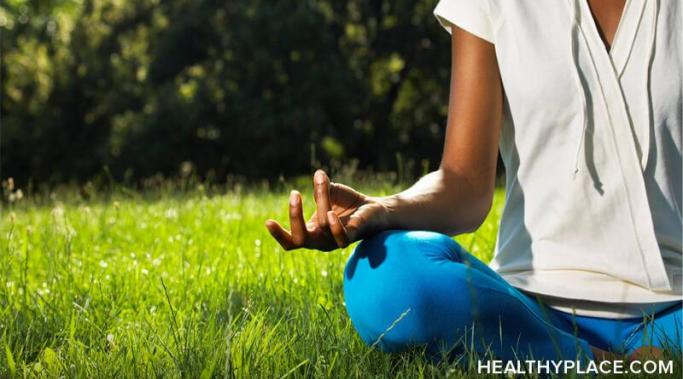I want to talk about porn addiction vs. porn consumption. In my experience, porn addiction is a highly complex and massively misunderstood behavioral addiction that can affect even the most unsuspecting individuals. Some might say that looking at pornography even one time will make you an addict, while others insinuate that watching porn is perfectly normal and socially acceptable. So which one is it? If you ask me, both of these answers contain some aspect of truth. Porn addiction can easily start after just one encounter, however, for a lot of people, porn consumption (maybe even porn addiction) is completely normal depending on your gender, social circle, religion, and more.
Making Changes
For me, choosing to take antidepressants in addiction recovery has been a great choice. After fighting through years of active addiction and a few years of addiction recovery, I have finally decided to work on my mental health struggles with a psychiatrist. My addiction to sex and pornography started roughly ten years ago in high school, but I didn't actually pursue recovery until years later in my early twenties. Amidst the fight against this devastating addiction, I was also consumed with a number of mental health disorders ranging from generalized anxiety, posttraumatic stress disorder, and most recently, depression.
As this decade is reaching its end, I am reminded of how long behavioral addictions have haunted me and exactly how far I've come. Around 2010, I first began exploring my sexuality as a teenager and I quickly learned how helpful sex could be as a coping skill for a struggling and defiant teenager like myself. Over time though, I wasn't just relying on sex to cope, my tendency to rely on certain behaviors or activities to survive slowly spread to nearly every area of my life including things like food, social media, shopping, and probably even others that I'm not fully aware of. Behavioral addictions are especially tricky to conquer because they commonly involve the most regular and routine aspects of our lives and they often go completely unnoticed.
We all cope with life differently, so how does one know when their beloved coping skill has manifested into a full-blown, unhealthy addiction? I believe most of us have our own unofficial list of coping skills that we turn to after (or during) a particularly unpleasant day. For some of us, a staple coping mechanism might be a hot bubble bath and for others, their nightly routine could include a chilled glass of wine while binge-watching their favorite sitcom. So how far is too far, and what transforms a harmless coping skill into an unhealthy life choice, or worse, an addiction?
In my observation, nearly every individual in addiction recovery has either heard of or experienced the 12-step groups or the 12-step curriculum. Some recovering addicts swear by 12-step practices and principles and other addicts convulse at the thought of attending a 12-step group meeting to share their feelings with a bunch of addicted strangers. I feel that I have a rather unique perspective on the 12-step model because while I don't actively participate in every principle and policy they suggest, I have developed a deep respect and admiration for the community as a whole and what they represent.
As a recovering addict, I have been fortunate enough to encounter many methods of recovery, including but not limited to the 12-step group for sex addiction. I first found my way to the most common group options like Alcoholics Anonymous (AA) and Narcotics Anonymous (NA), and eventually, I discovered the variety of sex addiction-related 12-step groups available. After spending plenty of time in the 12-step group world, I can honestly say that I'm abundantly grateful for the recovery work they do within the community. However, I cannot give 12-step groups all the credit in regards to my recovery experience and maintaining sobriety.
There are numerous benefits to documenting cravings on an official craving log. Managing cravings is perhaps one of the most challenging barriers you must face in recovery. If addiction is like an earthquake in our lives, cravings are the continual and sometimes catastrophic tsunamis that follow. I define cravings at the mental, emotional, or physical reminders that tug at your soul and remind you that your addiction still exists. They tend to be at their most extreme in early recovery, but in some cases, cravings can be experienced for years following your sobriety date. So let's see how beneficial a craving log might be for your personal addiction recovery.
When fighting addictions of any kind there are many important elements that support sobriety, but one of the most crucial ways to prevent relapse is by creating and maintaining healthy routines. In my experience, when you are missing aspects of your personal healthy routines, you are more susceptible to unhealthy thoughts, damaging choices, and most important, relapse.
Setting or maintaining boundaries with family and friends may be difficult if you are in recovery from addiction. The difficulty of setting limitations with others is a natural thing to experience in recovery because when you were in active addiction it’s likely that your boundaries were severely blurred or even nonexistent. The lack of boundaries in your life at the time may have led to manipulation, abuse, allowing others to take advantage of you and put you in harm’s way. It also leads to codependency in relationships, which likely fed your addiction and kept it active. But now you are in recovery, and it’s time to learn that setting and maintaining boundaries is essential to your recovery.
Acceptance in addiction recovery means you learn to accept the things you can’t change and focus on the things you can. Trying to change other people, living in the past, wishing things were different, and stressing over failed plans are the things that keep us stuck and cause great turmoil in our minds. I wasted an embarrassing amount of energy on things I was powerless over during my active addiction. I was so consumed by things I could not control, that I lost focus on the ones I could. Not knowing or misunderstanding acceptance in addiction recovery set me up to continually strive against the universe.









